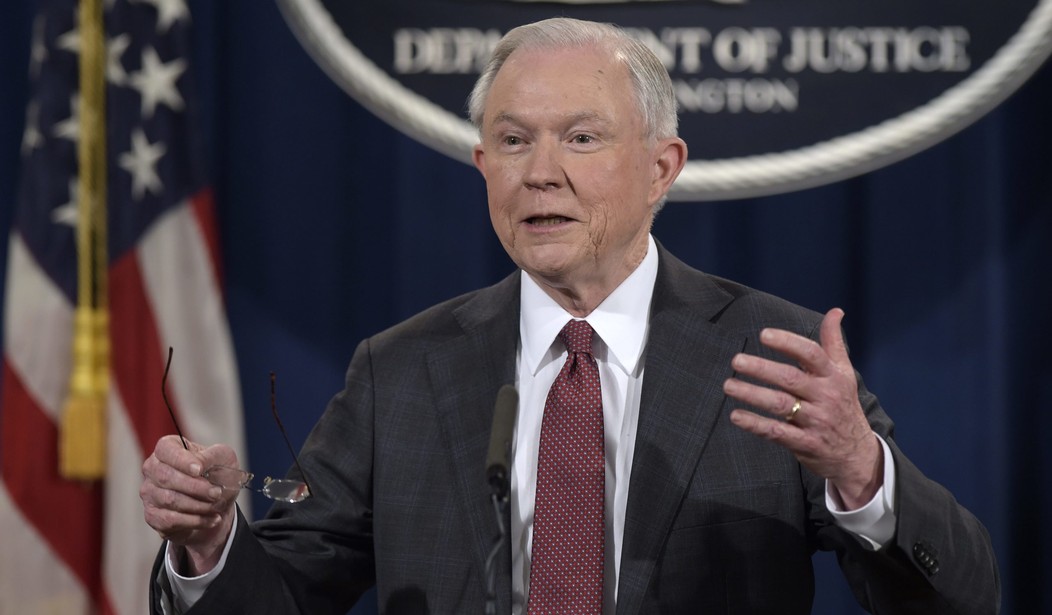Attorney General Jeff Sessions announced that the Department of Justice will begin punishing sanctuary cities who refuse to cooperate with the federal government in their efforts to detain and deport illegal aliens.
Sessions said his department controls $4 billion in funds and will try to prevent any of it from going to sanctuaries.
He said he’s carrying out a policy laid out by the Obama administration last year, which identified three grant programs — the COPS grants, Byrne grants and State Criminal Alien Assistance Program money — that already require sanctuary certification.
The Obama administration didn’t end up enforcing that policy, but Mr. Sessions said he’ll begin.
Sanctuaries are jurisdictions that thwart federal immigration agents’ efforts to deport illegal immigrants, usually be refusing to comply with detainer requests from U.S. Immigration and Customs Enforcement (ICE).
More than 100 cities and counties were identified last week in ICE’s inaugural public name-and-shame list of sanctuaries.
Some of the sanctuaries refuse all communication with ICE, saying they want no part of helping deport anyone. But other jurisdictions say they’re concerned about the legal implications of holding someone for ICE agents, and say federal agents’ requests aren’t good enough.
On Friday ICE issued a new detainer form, replacing a jumble of forms that had emerged under the Obama administration. ICE’s new single form allows agents to demand notification when a potential deportee is about to be released from custody, and also asks that the target person he held for up to 48 hours so agents can get their to pick the person up.
The notification requirement is controversial with only a handful of the most strident sanctuaries, but the 48-hour hold is more problematic.
The National Sheriffs’ Association said it was looking for a clearer policy statement from Mr. Sessions.
“Until the Department of Justice issues legal guidance confirming the constitutionality of current detainers, sheriffs will remain exposed to legal and ethical ramifications,” Jonathan Thompson, executive director of the association, said last week.
Sessions also said DoJ will try to “claw back” funding previously handed out to sanctuary cities.
Expect numerous court cases to arise from this new policy, but it’s hard to see how the cities have much of a case. That money belongs to the executive and he has broad leeway in deciding how to distribute it.
The problem with punishing sanctuary cities is that the cut off in funds is likely to be felt keenly by ordinary people who will have to deal with fewer police officers on the streets and less money devoted to fighting crime. No doubt the politicians in those cities will try to blame Washington. But there’s a simple solution; cooperate with immigration enforcement authorities and you’ll get your money.
Until then, illegal aliens may be safe in those cities but everyone else will be less so.










Join the conversation as a VIP Member